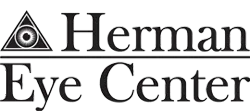
Do Your Eyes Have Trouble Adjusting to the Dark or Light? These Tips Will Help
Stepping into the bright sunshine or entering a dimly lit room can temporarily affect your vision, whether you have 20/20 vision or wear corrective lenses. Fortunately, following a few simple guidelines can help you avoid scrapes, bruises, or even broken bones while your eyes adjust.
How Can I See Better in the Dark?
Photoreceptor cells in your retina, called rods and cones, help you adjust to bright and dark conditions. The retina is the light-sensitive layer that lines the back of your eye. Cones work best in bright light and help you see colors and fine details, while rods are very sensitive to low light.
It can take several hours for your rods to fully adapt to dimly lit conditions, although your vision will gradually begin to improve soon after you enter a dark room or go outside at night. Full adjustment to bright conditions occurs in just a few minutes.
Seeing in the dark becomes more difficult as you age, due to several reasons.
- Smaller pupils. Aging causes the pupils to shrink, which allows less light to enter your eyes in dark conditions.
- Not as many rods. The number of rods in your retina decreases as you get older. Aging can also slow regeneration of rhodopsin, a photopigment necessary for good night vision. The photopigment decomposes in bright light, then regenerates in the dark.
- Eye conditions. Seeing in the dark and at night can be more difficult if you have cataracts or macular degeneration.
No matter what your age, you can help your eyes adjust to the dark by:
- Closing your eyes. Before you move into a dark area, close your eyes for a few minutes to speed dark adaptation.
- Wearing sunglasses when you're outside. The longer you're exposed to bright light, the longer it will take for your eyes to adjust to the dark. Wear sunglasses year-round to make adjusting to the dark easier.
- Seeing Red. Glasses with red-tinted lenses make seeing in low lighting easier, as rods don't detect the color. Wearing the glasses for just 30 minutes before you venture outside or into a dark room can hasten the adjustment process.
- Limiting exposure to bright lights. Looking directly at bright lights can make it harder to see in the dark. If you have cataracts, glare from oncoming headlights can be a problem when you drive at night. Try to avoid looking directly at the lights to make driving more comfortable.
- Changing the settings on digital devices. Viewing brightly lit smartphones, iPads, TVs, laptops, and other digital devices may make it difficult to adjust to dim light. Decreasing the brightness on the devices offers a simple solution.
- Lubricating your eyes. Dry eyes can make it more difficult to see in the dark. Use lubricating drops throughout the day if your eyes are dry.
What Can I Do If I Have Trouble Adjusting to Bright Light?
Some of the same tips that help you adjust to the dark can also be useful if you have a problem with bright light. You may find it easier to tolerate bright light if you:
- Wear sunglasses. Sunglasses are a must if you'll be outside but can also be helpful if bright lights indoors bother you. Put the glasses on before you go outside. Choose wraparound styles that cover the sides, tops, and bottoms of the eyes. Transition lenses that darken when you go outside and gradually lighten indoors are a good choice if you don't want to constantly take your sunglasses on and off. Sensitivity to light is more likely to be an issue if you have blue, gray, or green eyes.
- Add an anti-reflective coating to your glasses. An anti-reflective coating added to eyeglass lenses decreases glare and may be well worth the additional cost. If you spend hours working on a computer every day, ask your eye doctor about lenses that block blue light. Blue-blocking lenses reduce eyestrain and headaches and may even lower your risk of macular degeneration.
- Turn down the lights. Installing dimmer switches on your lights at home, adding filters to digital devices that decrease glare, and lowering the brightness level on your phone, computer, or TV can be helpful. Fluorescent lights can be very irritating if you're sensitive to bright light. Desk lamps offer a more comfortable lighting choice, although you may not be able to turn off fluorescent lights if you don't have a private office. Wearing tinted lenses may improve your comfort.
Are you concerned about your ability to see well in dim or bright conditions? Contact us to schedule an appointment.
Sources:
All About Vision: Photophobia
https://www.allaboutvision.com/conditions/lightsensitive.htm
Harvard Health Publishing: Blinded by the Night, 6/07
https://www.health.harvard.edu/diseases-and-conditions/blinded-by-the-night
EveryDay Health: How to Relieve Light Sensitivity
